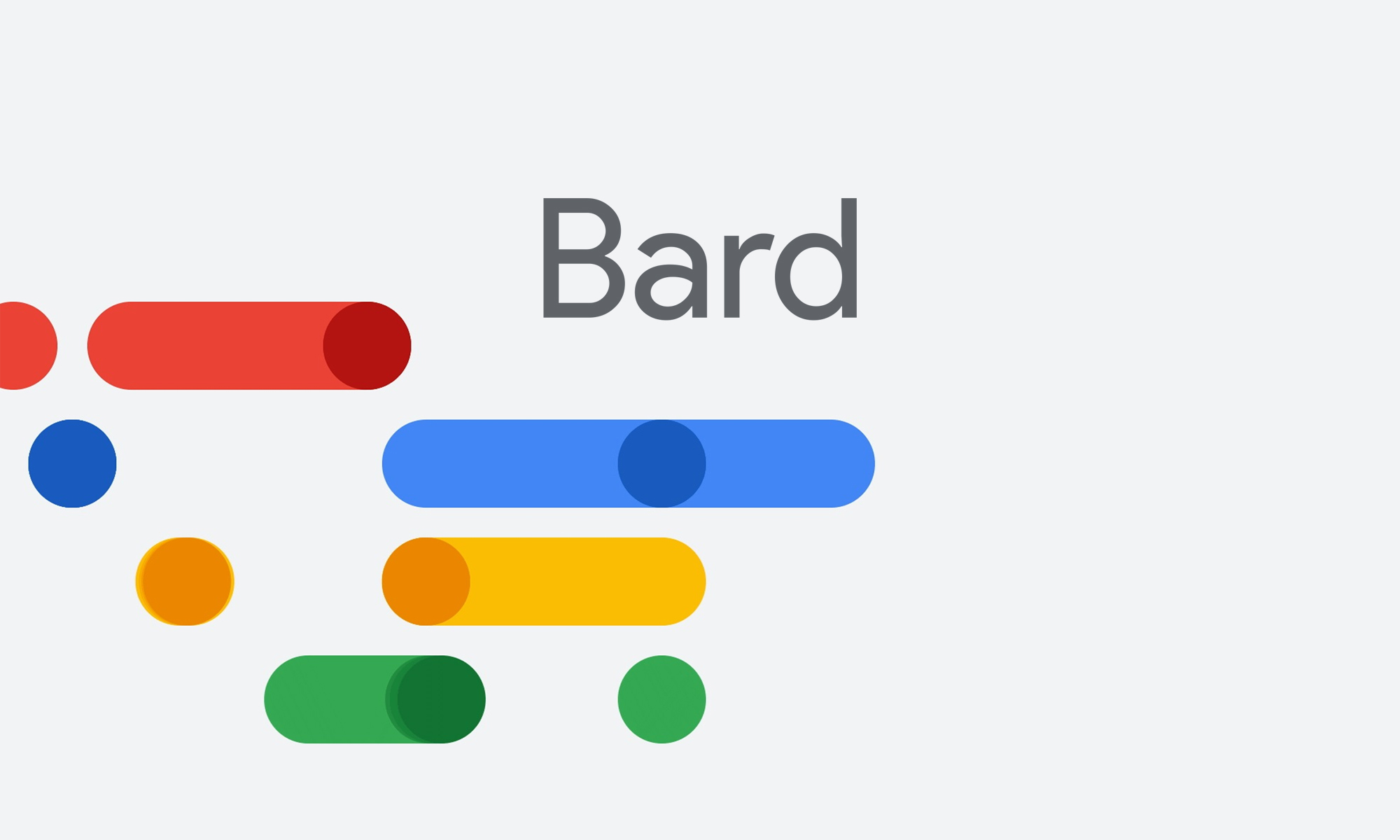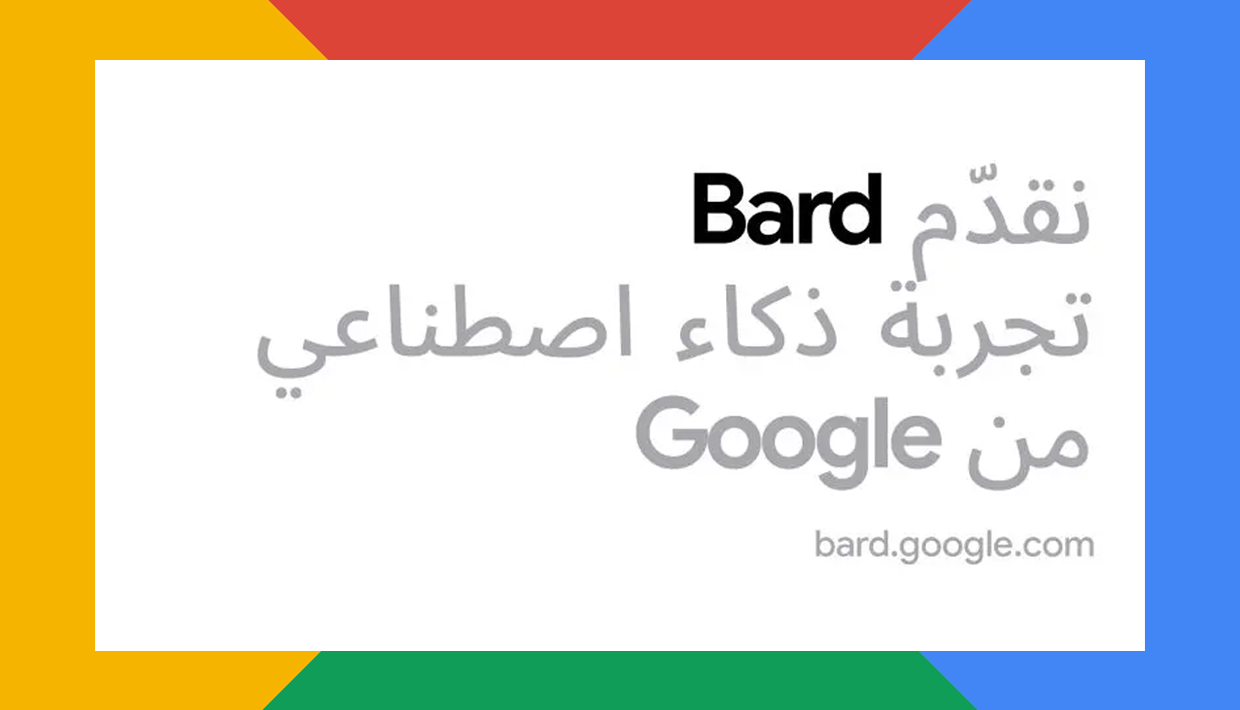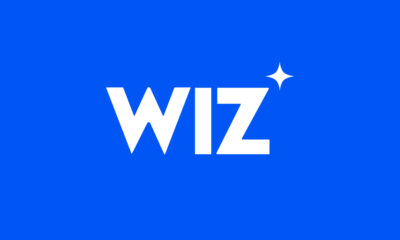News
Google Launches Arabic Version Of AI Chat Tool Bard
The generative AI platform can understand 16 dialects, including Saudi, Egyptian, and Emirati.

Alphabet, the company in charge of Google’s extensive suite of products, has launched an Arabic version of its artificial intelligence platform, Bard. The tool now contains updates to address Arabic speakers’ unique needs amid the search giant’s increasing rivalry with Microsoft and its infamous ChatGPT platform.
The conversational AI tool can understand questions in 16 colloquial Arabic dialects, including Egyptian, Emirati, and Saudi. However, the AI chatbot will provide answers in classical Arabic, Google execs explained at a Dubai press briefing.
“Bard will be available in the Arabic language across all corners of the Arab world as part of its global launch in 40 other languages,” announced Najeeb Jarrar, regional director of marketing for Google MENA.

Bard in Arabic now features a user interface supporting the language’s right-to-left script. At the same time, users can also input questions in several languages simultaneously, helping both bilingual speakers and novice language students.
“A big team of Google’s engineers and linguist experts worked together over the last months so that the product, Bard, will not just be a translation […] but a product that matches our use in the Arabic language,” said Marwa Khost, Google’s communications manager for MENA.
Also Read: Dubai’s Sheikh Hamdan Launches New Digital Cloud Project
When asked whether the relatively limited volume of Arabic online content would affect the depth of Bard’s responses, Google explained that the AI platform could source material from the wider online landscape and translate it into a user’s preferred language. The search company’s execs also noted that the amount of Arabic content had grown and diversified exponentially in recent years.
The launch of Bard in Arabic comes as the AI tool is rolled out across 59 new regions and countries, including Brazil and most of Europe. The latest expansion means Bard is available in 46 languages and 239 countries and territories.
News
Google Releases Veo 2 AI Video Tool To MENA Users
The state-of-the-art video generation model is now available in Gemini, offering realistic AI-generated videos with better physics, motion, and detail.

Starting today, users of Gemini Advanced in the MENA region — and globally — can tap into Veo 2, Google’s next-generation video model.
Originally unveiled in 2024, Veo 2 has now been fully integrated into Gemini, supporting multiple languages including Arabic and English. The rollout now brings Google’s most advanced video AI directly into the hands of everyday users.
Veo 2 builds on the foundations of its predecessor with a more sophisticated understanding of the physical world. It’s designed to produce high-fidelity video content with cinematic detail, realistic motion, and greater visual consistency across a wide range of subjects and styles. Whether recreating natural landscapes, human interactions, or stylized environments, the model is capable of interpreting and translating written prompts into eight-second 720p videos that feel almost handcrafted.
Users can generate content directly through the Gemini platform — either via the web or mobile apps. The experience is pretty straightforward: users enter a text-based prompt, and Veo 2 returns a video in 16:9 landscape format, delivered as an MP4 file. These aren’t just generic clips — they can reflect creative, abstract, or highly specific scenarios, making the tool especially useful for content creators, marketers, or anyone experimenting with visual storytelling.
Also Read: Getting Started With Google Gemini: A Beginner’s Guide
To ensure transparency, each video is embedded with SynthID — a digital watermark developed by Google’s DeepMind. The watermark is invisible to the human eye but persists across editing, compression, and sharing. It identifies the video as AI-generated, addressing concerns around misinformation and media authenticity.
While Veo 2 is still in its early phases of public rollout, the technology is part of a broader push by Google to democratize advanced AI tools. With text-to-image, code generation, and now video creation integrated into Gemini, Google is positioning the platform as a full-spectrum creative assistant.
Access to Veo 2 starts today and will continue expanding in the coming weeks. Interested users can try it out at gemini.google.com or through the Gemini app on Android and iOS.























